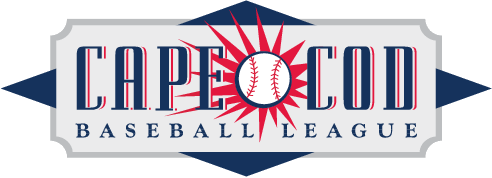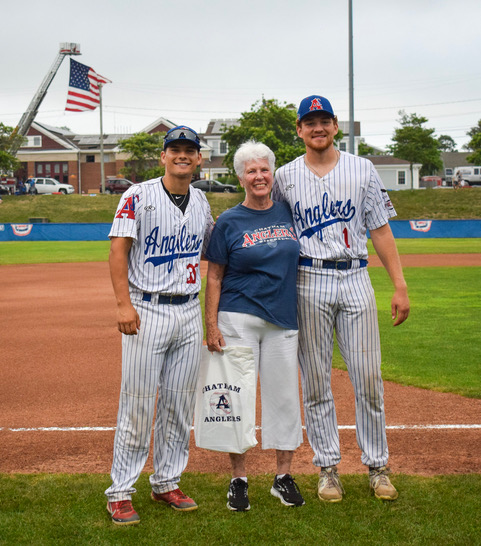Anglers News« Back to 2024 News Archives |
‘I want to end on my terms’: Memory loss, epilepsy haven’t slowed Will Bermudez down
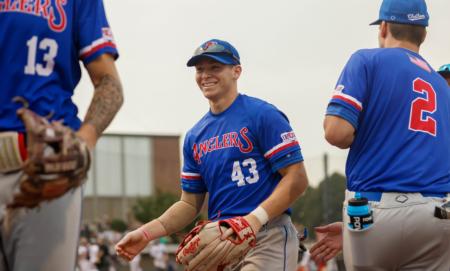
Will Bermudez woke up at 5 a.m. on a Monday in May 2019 and marveled at his sudden growth spurt. He felt taller, lighter, more agile. One look in the mirror confirmed it. When he walked downstairs, his father, William, looked distinctly different as well. Bermudez was confused. William told him to go back to bed. But rest didn’t reverse his new reality.
There was no growth spurt. The 17-year-old’s last five years of memory had been erased.
“I woke up 12,” Bermudez said. “I didn’t know I was in high school. I didn’t recognize my teammates, my friends, or my girlfriend at the time. You could’ve been my best friend in high school and I just wouldn’t have known who you were. My world completely changed.”
For the last five years, Bermudez has battled severe complications which stem from a traumatic head injury he suffered entering his senior year of high school. Temporary paralysis from the waist down, five years of memories wiped away for two weeks and a subsequent epilepsy diagnosis are among the scarring experiences Bermudez has weathered.
He’s been advised to ditch his baseball career. Doctors say the risks of being struck in the head again are too extreme. Though, he lives and breathes the sport. He always has. Bermudez’s dreams of attending the Air Force Academy were dashed, yet his journey on the diamond hasn’t slowed down one bit. The setbacks that turned the now-22-year-old’s life upside down no longer phase him — they’ve only made him a better man.
However, Bermudez is just fortunate he’s still alive.
It happened on a Friday during a summer baseball game near his hometown of Whittier, California, when Bermudez was entering his senior year at St. Paul High School. He was playing shortstop, and he remembers it all quite well.
A shallow pop-fly got hit to center field. Bermudez pivoted to his left and ran toward the ball, turning his back to face home plate. He was preparing to make a “Willie Mays style” catch, he said. Bermudez dove to snag the ball over his shoulder. Yet, the second baseman pursued it as well. He didn’t stop early enough to prevent a collision.
“He tried to jump over me to avoid me, and then he kneed me in the back of the head,” Bermudez said.
At first, Bermudez was upset that he failed to come down with a snow-cone catch. But he realized he couldn’t get up. He was paralyzed from his hips down.
“This is my new reality,” Bermudez remembers thinking to himself. “I was like, ‘OK, I’m not gonna be able to play no more. But it’s OK. I’m still alive.’”
William, an assistant coach on the team, along with other coaches rushed over to Bermudez. He said one coach started applying pressure points all over his leg, though Bermudez couldn’t feel anything. It lasted for about 10-15 minutes, but Bermudez eventually regained feeling in his lower body and walked off the field.
A few minutes after Bermudez sat down in the dugout, a painful headache set in. William said he put him in the car and rushed him to the emergency room. Bermudez went through the concussion protocol. Doctors found he had a severe one.
The recovery plan wasn’t too out of the ordinary. No phone. No TV. Just rest and relaxation without bright light. Bermudez said his head hurt throughout the first full day. It did on the second day, too.
Then came the third day.
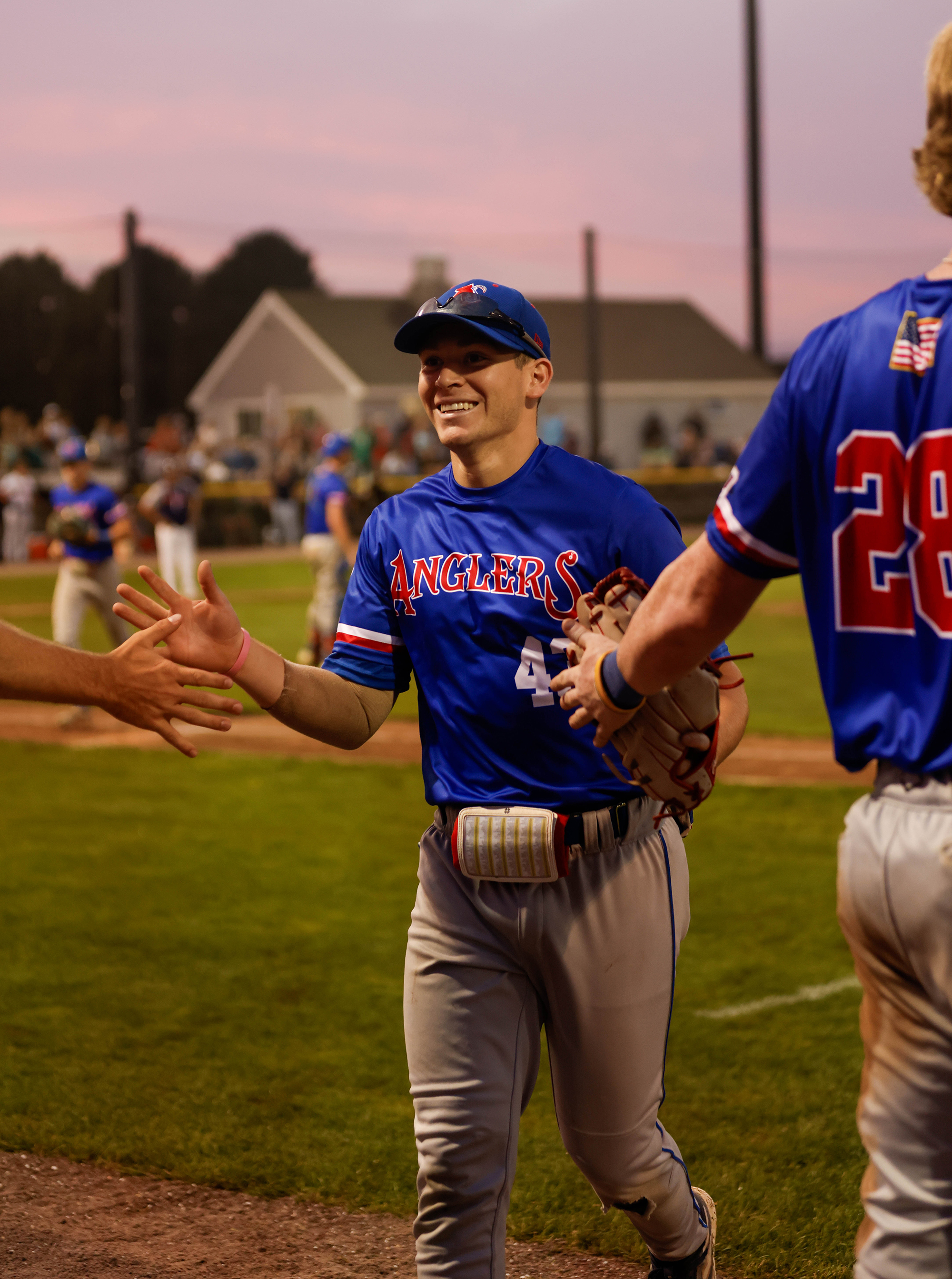
Will Bermudez smiles as he greets Chatham teammates on the way to the dugout during the Anglers' July 25 matchup against Bourne / Photograph by Ella Tovey
Bermudez’s mother, Sandra, first noticed it when he asked why the couches in their living room looked so different. She noticed it again when she was going to take Bermudez to Starbucks, but he couldn’t remember what he usually ordered. She knew her son’s reality once Bermudez couldn’t recognize his neighbor, the same one he had for his entire childhood.
“Oh my goodness,” Sandra thought at the time. “Lord help me.”
Bermudez had to piece together his memory of old. He didn’t recognize his family members as well as he used to. For those who he couldn’t recall in the slightest, Bermudez had to introduce himself as if they’d never met before.
It even impacted him on the baseball diamond. Bermudez is a switch-hitter, but originally a righty. He’d learned how to hit lefty years before his head injury. When William took Bermudez back to a field for the first time amid his memory loss, however, he forgot how to bat left-handed, calling it a complete mental block.
Bermudez grew frustrated at times. People would show him pictures or tell him stories that he just didn’t know or remember, which he said was a tough pill to swallow. Bermudez’s family and friends were there to help him, though. They made a picture book for him. They quizzed him repeatedly to remember teachers and teammates. He said after about two weeks, his memory rushed back in all at once. But he wasn’t fully recovered from his concussion.
Bermudez struggled the most with maintaining focus, something that had never been an issue. Sandra said Bermudez was a highly-attentive student. When he returned back to school, it wasn’t the same. He had a tough time retaining information. He couldn’t stay in the classroom for more than 10 minutes, and had to take frequent walks.
He also still found trouble hitting lefty. At the time, Bermudez was committed to the Air Force, and needed to return to playing shape. He said his timing was off and his stance wasn’t where it used to be. It took him a couple more weeks to become fully comfortable switch-hitting again.
On and off the field, Bermudez was properly adjusting. His doctors didn’t think he should risk playing baseball and sustaining another head injury, though that didn’t phase him. Bermudez was focused on his next step: graduate high school before arriving at the Air Force Academy.
Then came another setback. In September 2019, Bermudez suffered his first seizure.
He returned to St. Paul High School after a class retreat where he went mountain hiking. William was waiting in the parking lot to pick up Bermudez, who didn’t drive to school that day. That’s when Sandra got a call from the St. Paul front office. She was told Bermudez fell and was bleeding from his mouth, unaware of what had actually occurred.
Sandra said he received CPR after his head turned blue. Bermudez later had to go to the emergency room and get stitches on his forehead. He went to see his neurologist, who performed an EEG test on his brain. Though, the neurologist initially determined that Bermudez was likely dehydrated. He followed their advice by drinking more water in the coming days. But he had another seizure a few weeks later, prompting another visit.
On Oct. 17, 2019, Bermudez was diagnosed with epilepsy. His neurologist found that he’s always had epilepsy, yet it was dormant. The head injury kick-started it to impact his body.
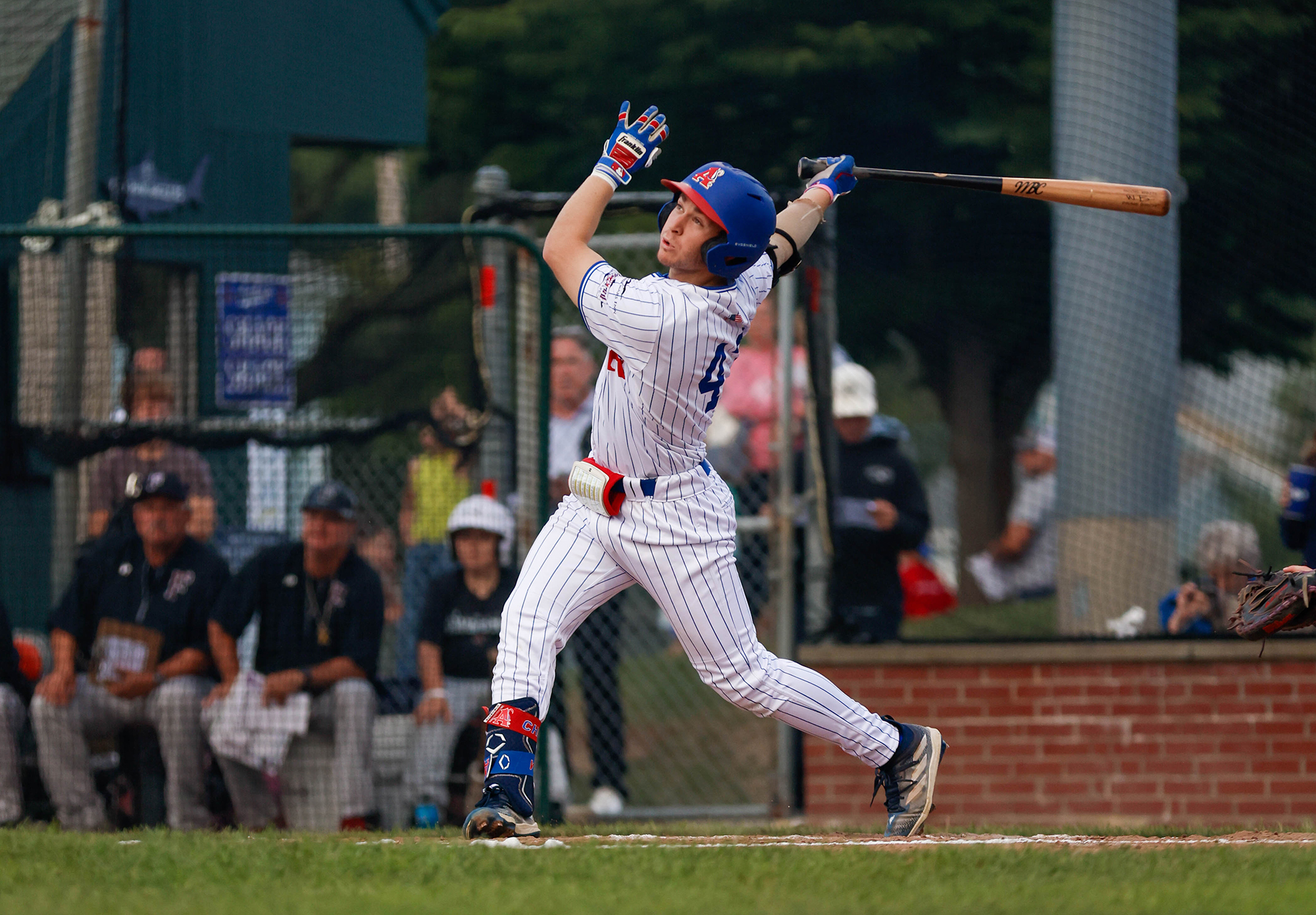
Will Bermudez has totaled a .868 OPS over his first eight appearances with Chatham in 2024, blasting one home run and driving in seven runs / Photograph by Ella Tovey
Anyone with epilepsy is medically disqualified from the Air Force. In the doctor’s office, fresh off of receiving the news, Bermudez had to make a difficult phone call to Falcons head baseball coach Mike Kazlausky. The skipper answered him right away. Bermudez notified him of his newfound condition. Apologetically, Kazlausky let Bermudez know he wasn’t eligible to be a pilot anymore.
“I’ll never forget that day,” Bermudez said. “If it’s not meant to be, it’s just not meant to be.”
Not only was Bermudez devastated, he felt he no longer had control of his body. He said he could sleep well, eat right and follow every direction, but still have a seizure. Bermudez had one about every week, he revealed. He would go through grand mal seizures — intense muscle spasms. Bermudez likened a typical one of his seizures to flexing as hard as possible without breathing for three minutes, or even longer.
“After my seizures, I’m sleeping for like 15, 16 hours,” Bermudez said. “The biggest part is that my legs and core are really, really sore. My arms are OK. But those two regions are the absolute most sore they’ve ever been, even still today.”
Through it all, Bermudez rolled with the punches. He made sure to keep a steady diet, hydrate well and take his medication consistently. His recovery became routine. And the results are clear. Bermudez hasn’t suffered a seizure in nearly three years. He has full control over his body once again.
Meanwhile, he’s long past his concussion. From being told he shouldn't play anymore, Bermudez attended UC Davis in the 2021 season and then played for Mt. San Antonio College in the following year. Yet after transferring to UC Irvine heading into 2023, Bermudez’s success catapulted.
As a redshirt sophomore, Bermudez was awarded the Big West’s Gold Glove award for the conference’s best defender. He also batted .250 at the plate with 43 hits. Bermudez was even better this past spring for the Anteaters. The infield/outfield prospect earned All-Big West Second-Team honors, posting a .301 batting average and driving in 48 runs.
Shining bright at the Division-I level signified Bermudez’s road back from not being able to stand up five short years ago.
“Nothing was going to stop him from playing ball, no matter what anybody said,” William said, fighting back tears. “He just continues to surprise us and impress us.”
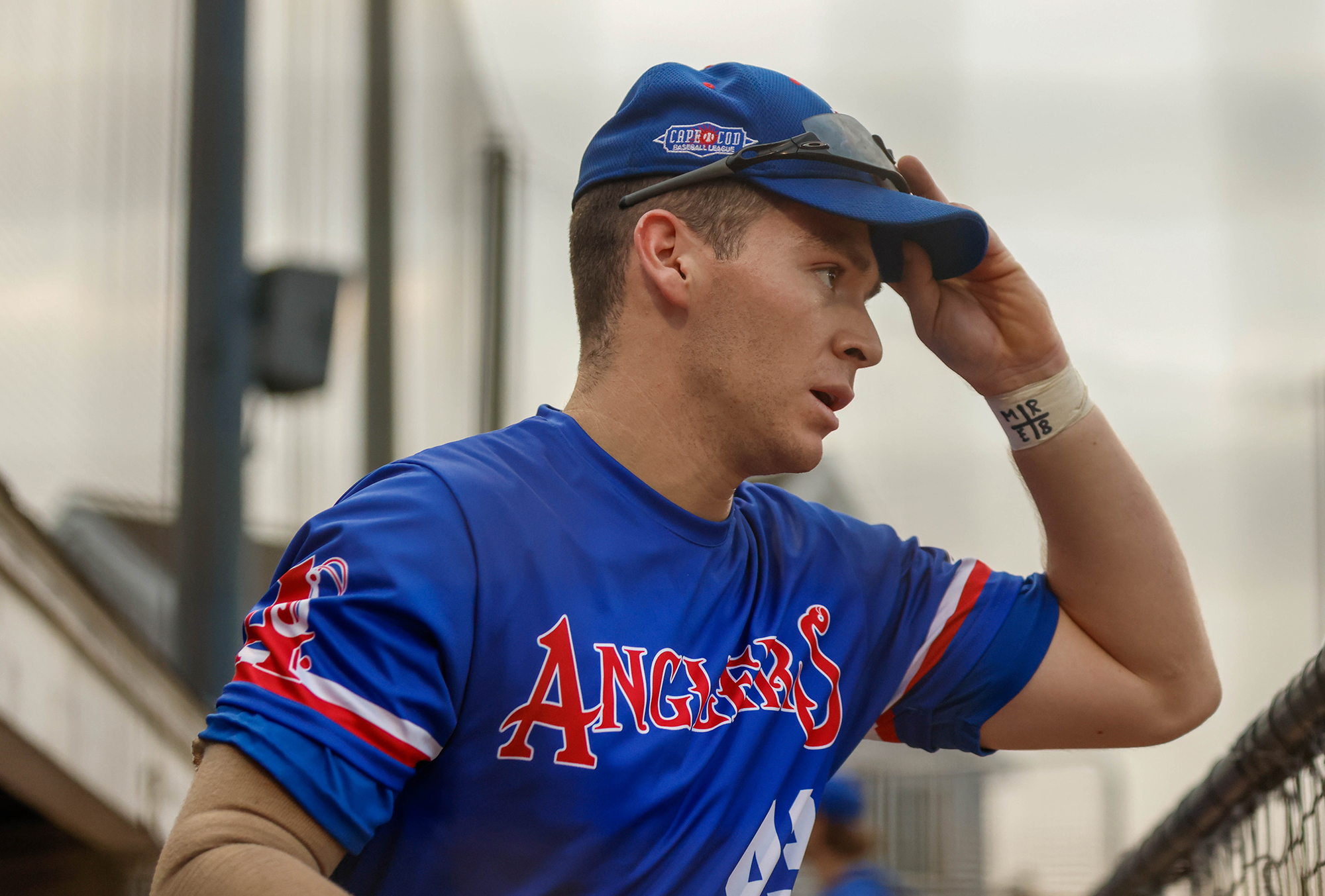
Chatham infielder/outfielder Will Bermudez hasn't suffered a seizure in nearly three years as he's learned to live with epilepsy / Photograph by Ella Tovey
Beating the odds has inspired Bermudez to alter his off-the-field priorities, too. He’s moved on from his pilot dreams. Instead, he wants to be a psychiatrist so he can help people who are experiencing mental trauma. Bermudez’s motivations carry into volunteer work as well. For two years, he coached in the Challenger Program, which helps people with disabilities play baseball.
It was an opportunity for him to blend his passion for baseball while contributing to a cause he deeply cares about. Bermudez’s injury never deterred his beaming personality, suiting him perfectly to serve as a role model.
“You never know when it can be your last day,” Bermudez said. “It’s just about seeing how blessed you are no matter how tough your battles are.”
Bermudez knows the pain of being labeled and limited due to having disabilities, which compels him to help kids conquer their challenges and keep chasing their dreams.
Bermudez’s own dream of going to the Air Force may have ended prematurely. Though, Sandra revealed that Kazlausky has often texted Bermudez along his resurgent road back — infallible proof he’s still Air Force worthy despite his epilepsy.
Sandra and William said their son can adapt to any situation, no better exemplified than conquering dire circumstances to continue his baseball career. Bermudez’s strength and composure are traits that define who he is, and also qualities that helped soften the blow when he wasn’t selected in July’s MLB Draft.
A scout told Bermudez that he was on their club’s board before the draft and to be ready to pick up the phone on day two, according to William. Bermudez sat with his family, patiently waiting throughout day one, two and three. Yet, his phone never rang.
He immediately briefed his parents that he was going to Cape Cod to play for Chatham. They knew he was heartbroken, a feeling Bermudez knows all too well. William said he will never forget when Bermudez reassured him that his journey is not over. He didn’t think it was his time to be drafted. He’s going to keep pushing until he gives out.
Because if one thing is certain about Bermudez, it’s that his drive is impenetrable. It will take even more than head trauma, seizures and gloomy doctor’s recommendations to stop him.
“I want to end on my terms,” Bermudez says. “Baseball is my life. I don’t want to end on a crazy, one-in-a-million type of injury.”
There was no growth spurt. The 17-year-old’s last five years of memory had been erased.
“I woke up 12,” Bermudez said. “I didn’t know I was in high school. I didn’t recognize my teammates, my friends, or my girlfriend at the time. You could’ve been my best friend in high school and I just wouldn’t have known who you were. My world completely changed.”
For the last five years, Bermudez has battled severe complications which stem from a traumatic head injury he suffered entering his senior year of high school. Temporary paralysis from the waist down, five years of memories wiped away for two weeks and a subsequent epilepsy diagnosis are among the scarring experiences Bermudez has weathered.
He’s been advised to ditch his baseball career. Doctors say the risks of being struck in the head again are too extreme. Though, he lives and breathes the sport. He always has. Bermudez’s dreams of attending the Air Force Academy were dashed, yet his journey on the diamond hasn’t slowed down one bit. The setbacks that turned the now-22-year-old’s life upside down no longer phase him — they’ve only made him a better man.
However, Bermudez is just fortunate he’s still alive.
It happened on a Friday during a summer baseball game near his hometown of Whittier, California, when Bermudez was entering his senior year at St. Paul High School. He was playing shortstop, and he remembers it all quite well.
A shallow pop-fly got hit to center field. Bermudez pivoted to his left and ran toward the ball, turning his back to face home plate. He was preparing to make a “Willie Mays style” catch, he said. Bermudez dove to snag the ball over his shoulder. Yet, the second baseman pursued it as well. He didn’t stop early enough to prevent a collision.
“He tried to jump over me to avoid me, and then he kneed me in the back of the head,” Bermudez said.
At first, Bermudez was upset that he failed to come down with a snow-cone catch. But he realized he couldn’t get up. He was paralyzed from his hips down.
“This is my new reality,” Bermudez remembers thinking to himself. “I was like, ‘OK, I’m not gonna be able to play no more. But it’s OK. I’m still alive.’”
William, an assistant coach on the team, along with other coaches rushed over to Bermudez. He said one coach started applying pressure points all over his leg, though Bermudez couldn’t feel anything. It lasted for about 10-15 minutes, but Bermudez eventually regained feeling in his lower body and walked off the field.
A few minutes after Bermudez sat down in the dugout, a painful headache set in. William said he put him in the car and rushed him to the emergency room. Bermudez went through the concussion protocol. Doctors found he had a severe one.
The recovery plan wasn’t too out of the ordinary. No phone. No TV. Just rest and relaxation without bright light. Bermudez said his head hurt throughout the first full day. It did on the second day, too.
Then came the third day.

Will Bermudez smiles as he greets Chatham teammates on the way to the dugout during the Anglers' July 25 matchup against Bourne / Photograph by Ella Tovey
Bermudez’s mother, Sandra, first noticed it when he asked why the couches in their living room looked so different. She noticed it again when she was going to take Bermudez to Starbucks, but he couldn’t remember what he usually ordered. She knew her son’s reality once Bermudez couldn’t recognize his neighbor, the same one he had for his entire childhood.
“Oh my goodness,” Sandra thought at the time. “Lord help me.”
Bermudez had to piece together his memory of old. He didn’t recognize his family members as well as he used to. For those who he couldn’t recall in the slightest, Bermudez had to introduce himself as if they’d never met before.
It even impacted him on the baseball diamond. Bermudez is a switch-hitter, but originally a righty. He’d learned how to hit lefty years before his head injury. When William took Bermudez back to a field for the first time amid his memory loss, however, he forgot how to bat left-handed, calling it a complete mental block.
Bermudez grew frustrated at times. People would show him pictures or tell him stories that he just didn’t know or remember, which he said was a tough pill to swallow. Bermudez’s family and friends were there to help him, though. They made a picture book for him. They quizzed him repeatedly to remember teachers and teammates. He said after about two weeks, his memory rushed back in all at once. But he wasn’t fully recovered from his concussion.
Bermudez struggled the most with maintaining focus, something that had never been an issue. Sandra said Bermudez was a highly-attentive student. When he returned back to school, it wasn’t the same. He had a tough time retaining information. He couldn’t stay in the classroom for more than 10 minutes, and had to take frequent walks.
He also still found trouble hitting lefty. At the time, Bermudez was committed to the Air Force, and needed to return to playing shape. He said his timing was off and his stance wasn’t where it used to be. It took him a couple more weeks to become fully comfortable switch-hitting again.
On and off the field, Bermudez was properly adjusting. His doctors didn’t think he should risk playing baseball and sustaining another head injury, though that didn’t phase him. Bermudez was focused on his next step: graduate high school before arriving at the Air Force Academy.
Then came another setback. In September 2019, Bermudez suffered his first seizure.
He returned to St. Paul High School after a class retreat where he went mountain hiking. William was waiting in the parking lot to pick up Bermudez, who didn’t drive to school that day. That’s when Sandra got a call from the St. Paul front office. She was told Bermudez fell and was bleeding from his mouth, unaware of what had actually occurred.
Sandra said he received CPR after his head turned blue. Bermudez later had to go to the emergency room and get stitches on his forehead. He went to see his neurologist, who performed an EEG test on his brain. Though, the neurologist initially determined that Bermudez was likely dehydrated. He followed their advice by drinking more water in the coming days. But he had another seizure a few weeks later, prompting another visit.
On Oct. 17, 2019, Bermudez was diagnosed with epilepsy. His neurologist found that he’s always had epilepsy, yet it was dormant. The head injury kick-started it to impact his body.

Will Bermudez has totaled a .868 OPS over his first eight appearances with Chatham in 2024, blasting one home run and driving in seven runs / Photograph by Ella Tovey
Anyone with epilepsy is medically disqualified from the Air Force. In the doctor’s office, fresh off of receiving the news, Bermudez had to make a difficult phone call to Falcons head baseball coach Mike Kazlausky. The skipper answered him right away. Bermudez notified him of his newfound condition. Apologetically, Kazlausky let Bermudez know he wasn’t eligible to be a pilot anymore.
“I’ll never forget that day,” Bermudez said. “If it’s not meant to be, it’s just not meant to be.”
Not only was Bermudez devastated, he felt he no longer had control of his body. He said he could sleep well, eat right and follow every direction, but still have a seizure. Bermudez had one about every week, he revealed. He would go through grand mal seizures — intense muscle spasms. Bermudez likened a typical one of his seizures to flexing as hard as possible without breathing for three minutes, or even longer.
“After my seizures, I’m sleeping for like 15, 16 hours,” Bermudez said. “The biggest part is that my legs and core are really, really sore. My arms are OK. But those two regions are the absolute most sore they’ve ever been, even still today.”
Through it all, Bermudez rolled with the punches. He made sure to keep a steady diet, hydrate well and take his medication consistently. His recovery became routine. And the results are clear. Bermudez hasn’t suffered a seizure in nearly three years. He has full control over his body once again.
Meanwhile, he’s long past his concussion. From being told he shouldn't play anymore, Bermudez attended UC Davis in the 2021 season and then played for Mt. San Antonio College in the following year. Yet after transferring to UC Irvine heading into 2023, Bermudez’s success catapulted.
As a redshirt sophomore, Bermudez was awarded the Big West’s Gold Glove award for the conference’s best defender. He also batted .250 at the plate with 43 hits. Bermudez was even better this past spring for the Anteaters. The infield/outfield prospect earned All-Big West Second-Team honors, posting a .301 batting average and driving in 48 runs.
Shining bright at the Division-I level signified Bermudez’s road back from not being able to stand up five short years ago.
“Nothing was going to stop him from playing ball, no matter what anybody said,” William said, fighting back tears. “He just continues to surprise us and impress us.”

Chatham infielder/outfielder Will Bermudez hasn't suffered a seizure in nearly three years as he's learned to live with epilepsy / Photograph by Ella Tovey
Beating the odds has inspired Bermudez to alter his off-the-field priorities, too. He’s moved on from his pilot dreams. Instead, he wants to be a psychiatrist so he can help people who are experiencing mental trauma. Bermudez’s motivations carry into volunteer work as well. For two years, he coached in the Challenger Program, which helps people with disabilities play baseball.
It was an opportunity for him to blend his passion for baseball while contributing to a cause he deeply cares about. Bermudez’s injury never deterred his beaming personality, suiting him perfectly to serve as a role model.
“You never know when it can be your last day,” Bermudez said. “It’s just about seeing how blessed you are no matter how tough your battles are.”
Bermudez knows the pain of being labeled and limited due to having disabilities, which compels him to help kids conquer their challenges and keep chasing their dreams.
Bermudez’s own dream of going to the Air Force may have ended prematurely. Though, Sandra revealed that Kazlausky has often texted Bermudez along his resurgent road back — infallible proof he’s still Air Force worthy despite his epilepsy.
Sandra and William said their son can adapt to any situation, no better exemplified than conquering dire circumstances to continue his baseball career. Bermudez’s strength and composure are traits that define who he is, and also qualities that helped soften the blow when he wasn’t selected in July’s MLB Draft.
A scout told Bermudez that he was on their club’s board before the draft and to be ready to pick up the phone on day two, according to William. Bermudez sat with his family, patiently waiting throughout day one, two and three. Yet, his phone never rang.
He immediately briefed his parents that he was going to Cape Cod to play for Chatham. They knew he was heartbroken, a feeling Bermudez knows all too well. William said he will never forget when Bermudez reassured him that his journey is not over. He didn’t think it was his time to be drafted. He’s going to keep pushing until he gives out.
Because if one thing is certain about Bermudez, it’s that his drive is impenetrable. It will take even more than head trauma, seizures and gloomy doctor’s recommendations to stop him.
“I want to end on my terms,” Bermudez says. “Baseball is my life. I don’t want to end on a crazy, one-in-a-million type of injury.”
